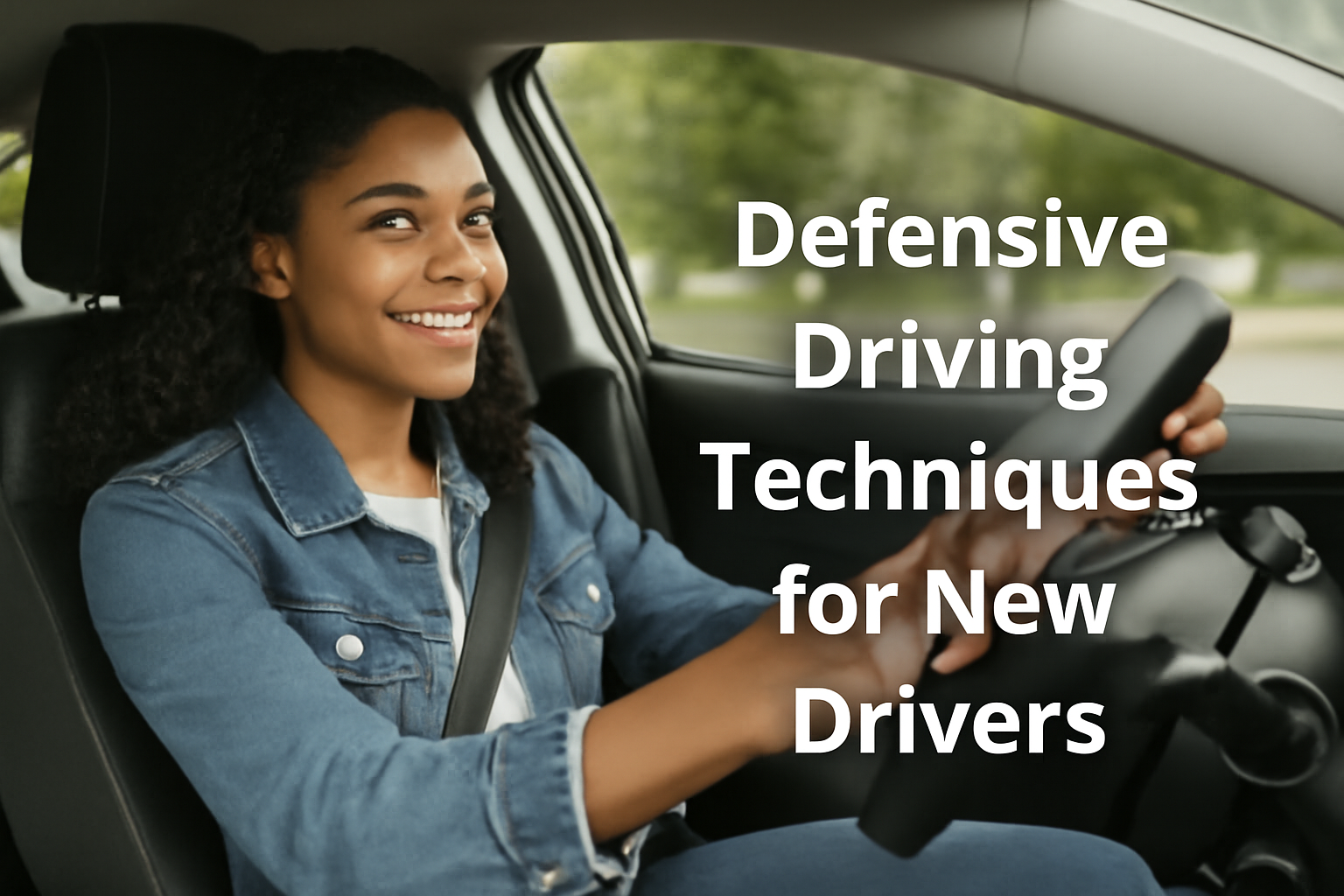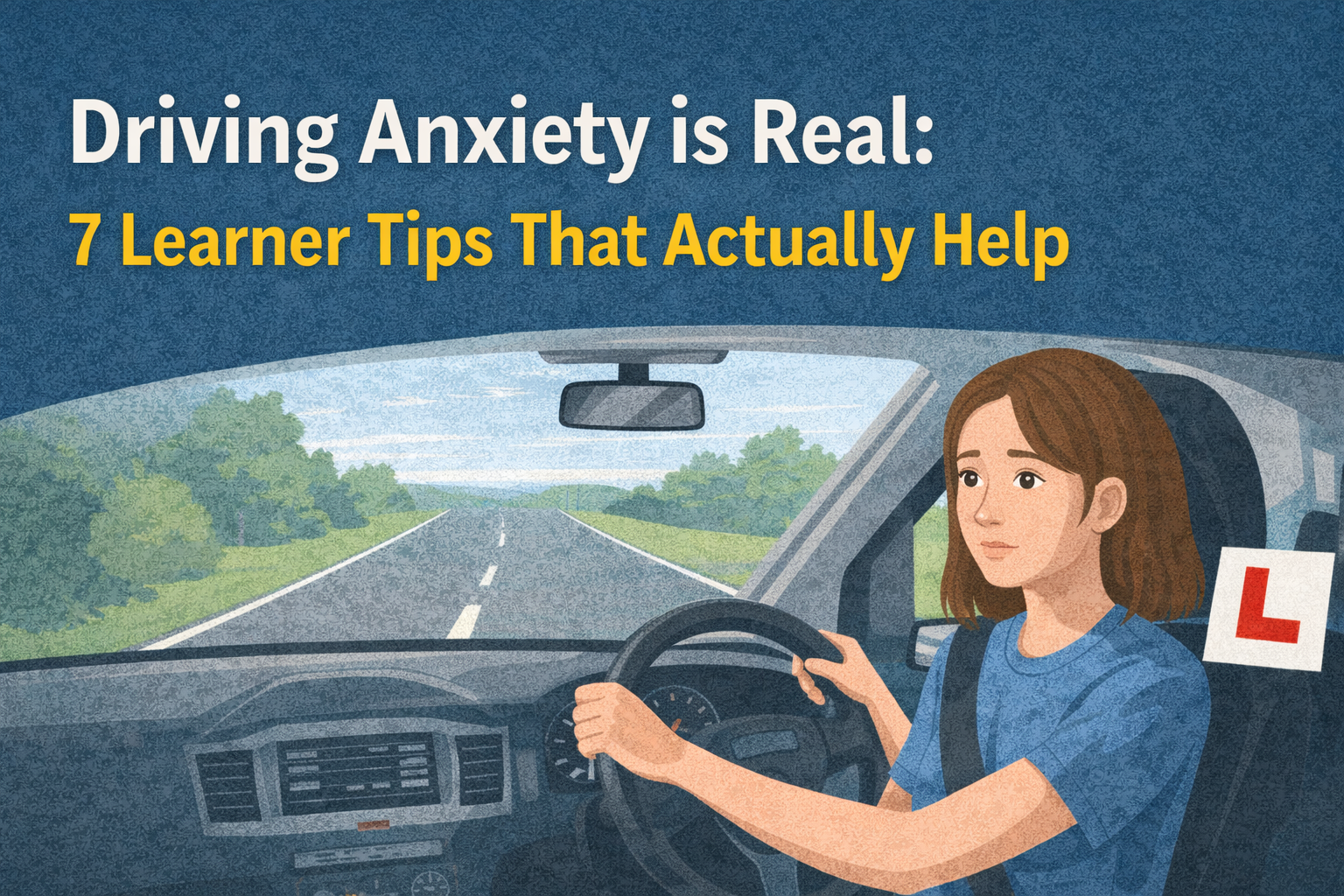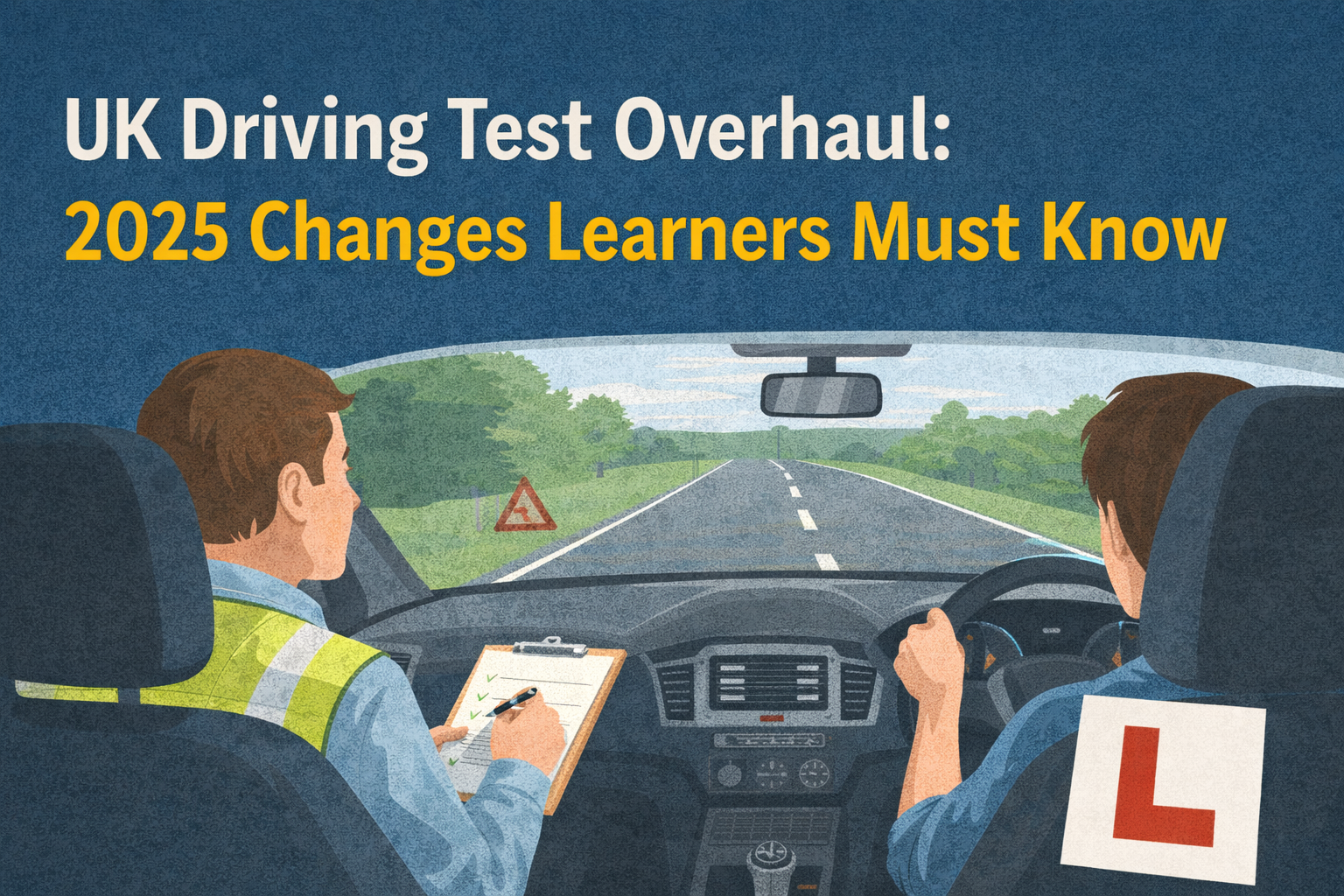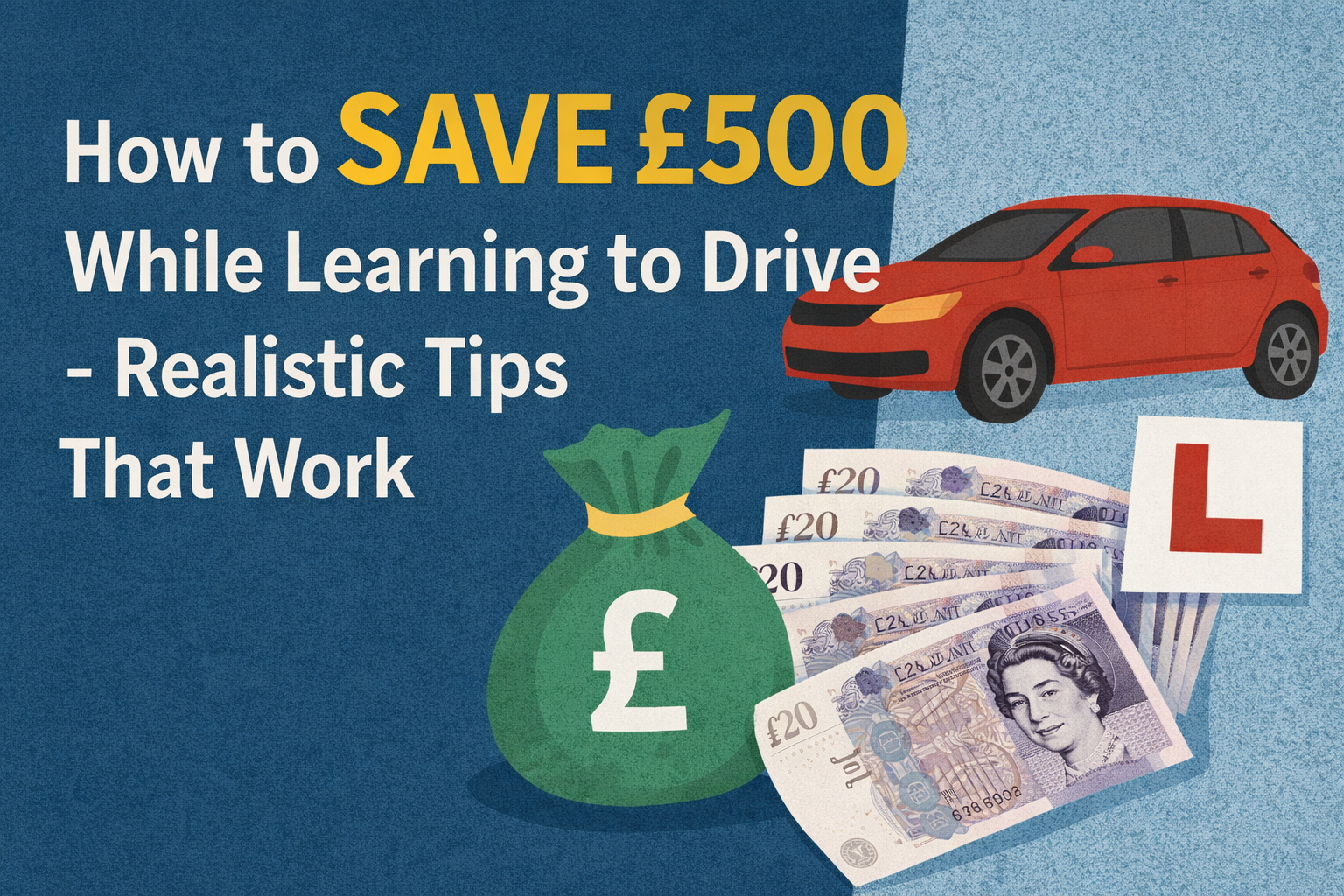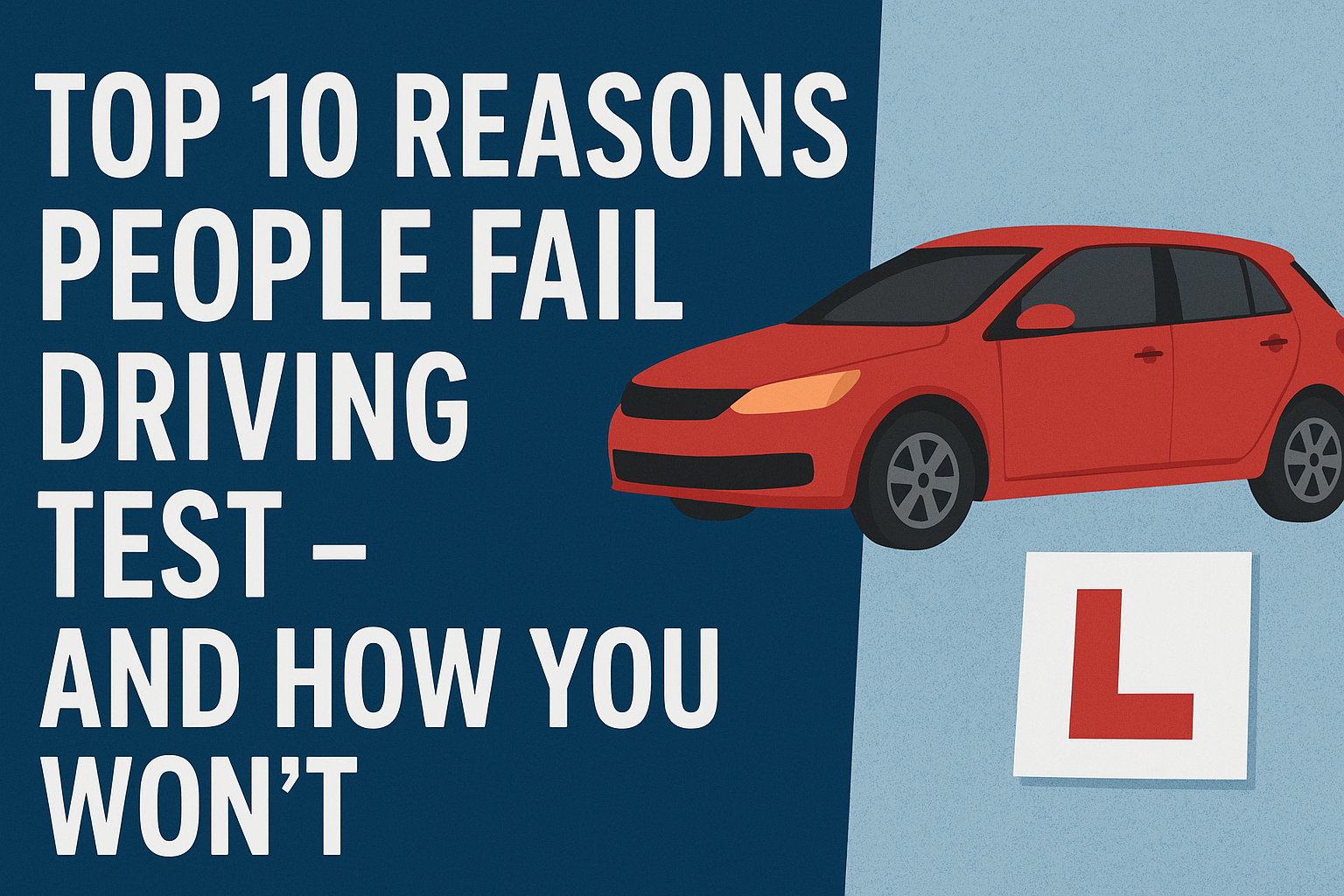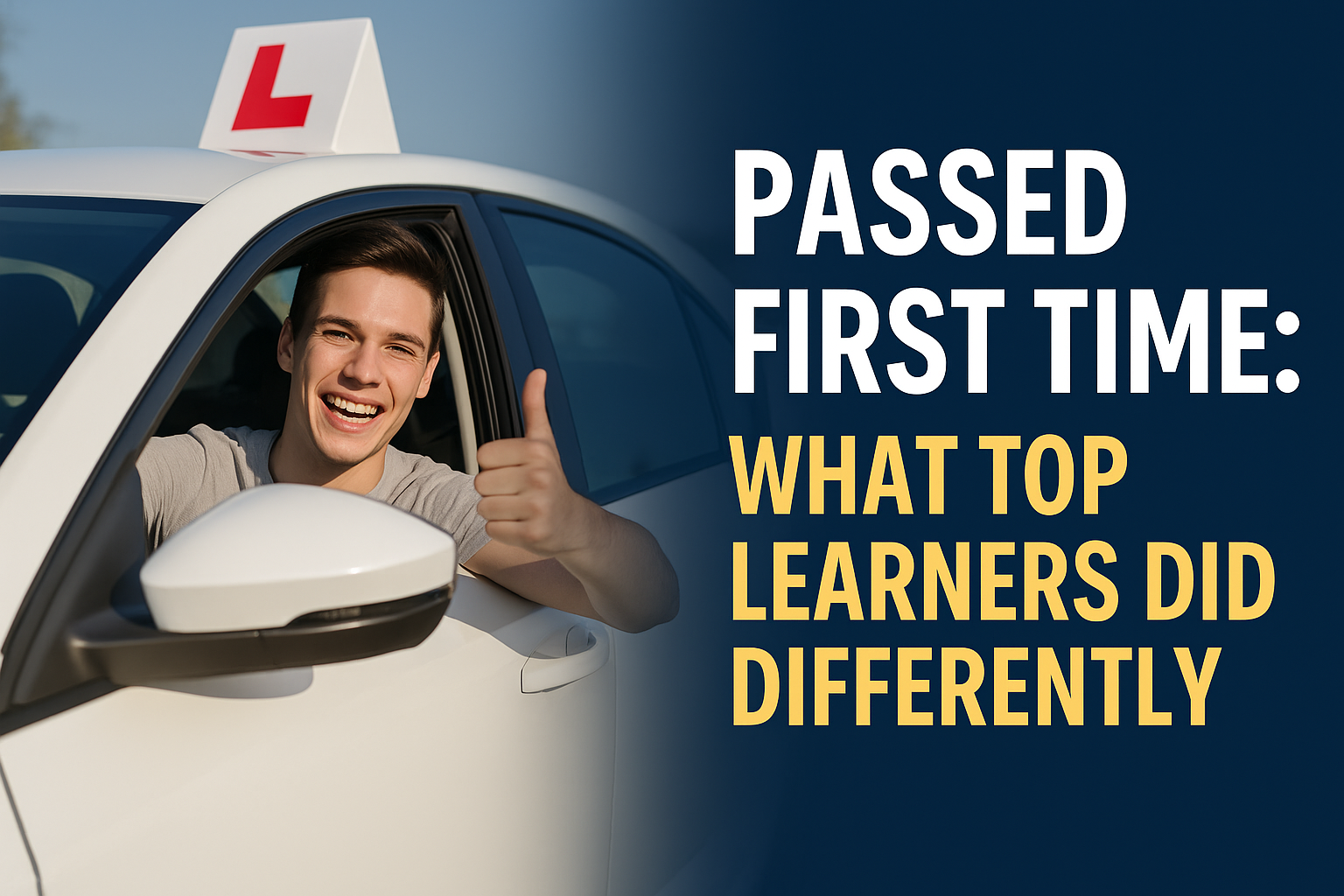The L-plates may be off, but your learning journey doesn’t stop once you pass the test. One of the most valuable habits any new driver can develop is the ability to drive defensively. It’s not about being overly cautious. It is about driving smart, staying aware, and reducing risks every time you’re behind the wheel.
So if you’ve just passed your test or you’re nearing it, here’s what you need to know about defensive driving techniques that every learner should master before taking on the open road.
1. Always Expect the Unexpected
When you’re behind the wheel, don’t assume everyone else on the road knows what they’re doing. Expect hesitation at roundabouts, sudden lane changes, and drivers who skip their indicators entirely.
Defensive drivers don’t rely on others to make the right move. They anticipate the wrong ones. You should always keep a safe distance, scan several cars ahead, and be prepared to react if something unpredictable happens. This mindset keeps you alert without being anxious, especially in busy city traffic.
If you’re searching for the best defensive driving tips, start by understanding that being alert is just as important as technical skill.
2. Maintain a Safe Following Distance
Tailgating doesn’t get you anywhere faster. In fact, it increases your chances of rear end collisions, especially if the car in front stops suddenly. Stick to the three second rule (or more if the weather is bad). That means picking a landmark and making sure at least three seconds pass before your car reaches it after the car in front.
This type of driving techniques not only gives you enough room to stop safely but also improves your overall road awareness.
One of the most important learner driver safety tips is to build a habit of maintaining distance, especially in unpredictable traffic.
3. Stay Calm at All Costs
No one enjoys getting cut off or stuck behind someone doing 20mph under the speed limit. But losing your temper doesn’t solve the problem. It adds to it. Road rage leads to risky decisions, distraction, and sometimes accidents. A defensive driver stays composed, doesn’t retaliate, and focuses on safety over ego.
New drivers especially benefit from learning this early. Your goal isn’t to prove anything. It’s to get from point A to B safely.
These new driver tips UK encourage a calm mindset that lets you make better choices even in high stress moments on the road.
4. Keep Distractions to a Minimum
That quick text reply can wait. Defensive driving demands your full attention and that includes both your eyes and your mind. Avoid checking your phone, fiddling with the stereo, or eating while driving. Even a split second distraction can lead to a major error, especially if you’re navigating traffic or approaching a junction.
Many learner drivers master control but struggle with multitasking once they pass. The key? Keep your environment quiet and focused until these decisions become second nature.
Among the best driving safety tips for beginners is creating a no distraction zone when you’re behind the wheel.
5. Master the Art of Mirror Checks
Mirrors aren’t just for reversing. They’re your best friends for staying aware of your surroundings. A good defensive driver checks their mirrors every 5–8 seconds and especially before turning, braking, or changing lanes. New drivers tend to focus straight ahead, but what’s behind and beside you matters just as much.
Make mirror checks part of your natural rhythm. It helps you catch tailgaters, spot motorbikes in blind spots, and see if someone’s trying to overtake you.
If you’re wondering how to drive safely in the UK, it starts with mastering your mirrors and learning to read the road around you.
6. Know Your Exit Strategy
This isn’t just for motorways. Whether you’re approaching a tricky junction, overtaking, or driving in bad weather, always have an exit strategy. That means being aware of where you could steer safely if someone pulls out unexpectedly or brakes hard in front of you.
Defensive drivers don’t just focus on their lane. They observe side roads, pavements, and gaps in traffic. It’s a simple habit that can buy you precious seconds in an emergency.
These driving techniques or habits in the UK are easy to learn but make a lasting impact on your safety and driving confidence.
7. Follow the Speed for the Conditions, Not Just the Sign
If the road sign says 40mph but it’s pouring rain and visibility is low, slow down. Defensive driving is about reading the environment, not just the road signs. Adverse weather conditions, poor lighting, or heavy traffic all call for lower speeds.
Stick to the pace that gives you time to react. Going slower than the limit isn’t “being too cautious” it’s being smart. Especially when you’re still building confidence on the roads.
Learning to match your speed to road and weather conditions is a top recommendation in any UK learner driver guide.
8. Don’t Let Pressure Make You Rush
Whether it’s the car behind riding your bumper or a friend waiting for a lift, don’t let pressure make you drive faster or take risks. One of the most underrated new driving techniques is to drive at your own pace.
No one else is responsible for your safety, only you are. So take a breath, ease into the journey, and drive like someone you love is in the passenger seat.
Every list of UK driving tips for beginners highlights the importance of ignoring external pressure and trusting your training.
9. Avoid Driving When Tired or Emotional
Your emotional and physical state affects your reaction time, judgment, and awareness. If you’re exhausted after a long shift or emotionally upset, it’s best to wait or arrange another way to travel. Defensive driving also means knowing when not to drive.
Even experienced drivers make poor choices when they’re tired and new drivers are still developing reaction instincts.
Following safe driving techniques UK like knowing your limits can save lives, especially during long or emotionally taxing days.
10. Practice in Different Conditions
Don’t limit your driving experience to quiet daytime roads. Once you’ve gained confidence, practice in different conditions like nighttime, rain, fog, dual carriageways. Controlled exposure makes you more adaptable and prepares you to stay calm and responsive in varied scenarios.
Defensive driving is a mindset you build with experience and experience comes from varied, mindful practice.
Whether it’s fog, rain, or night time conditions, learning to drive safely UK means being comfortable in all types of environments.
Final Thought
Being a defensive driver isn’t about being scared it’s about being smart. It’s a skill set that will keep you and others safe on the road, and it builds the kind of confidence that truly lasts. Whether you’re fresh from passing your test or still taking lessons, start incorporating these driving techniques now. Contact Road Skills to get expert help today!
You’ll drive better, safer, and more confidently and that’s what being a great driver is all about.

